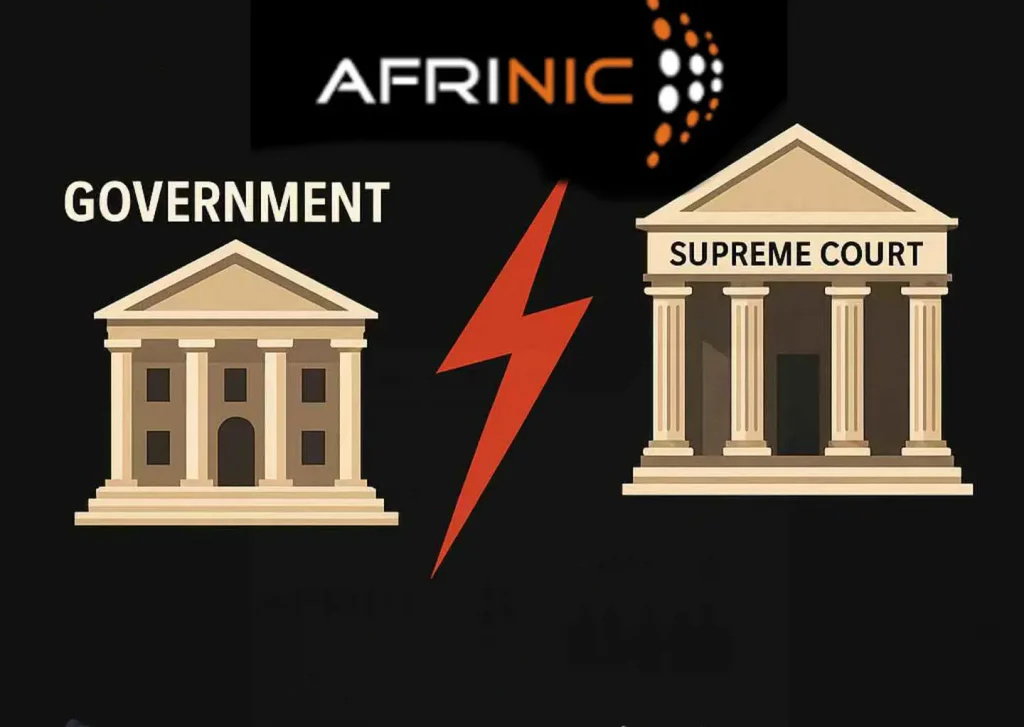• AfriNIC’s paralysis shows that even technical institutions cannot escape capture when courtrooms and politics blur.
• Mauritius’s legal system, marred by interlinked relationships and judicial overreach, provides a cautionary example for any registry’s claim to neutrality.
The courtroom becomes the battlefield
What began as a routine dispute over IP address management has spiralled into a showcase of how deeply political interference can derail a supposedly neutral technical registrar. AFRINIC, once entrusted with managing internet-number resources for Africa, now languishes under the weight of litigation, receiverships and injunctions, revealing how the rule of law can unravel when politics infiltrates the judiciary. This is not a tale of impartial governance—but of a registry ensnared by constitutional dysfunction.
Also read: AFRINIC launches voter onboarding ahead of board election
Also read: ICANN or ICan’t? CEO Lindqvist chooses dictatorship over democracy in AFRINIC
Judges, spouses, and the optics of impropriety
The proximity between AFRINIC’s key actors and the judiciary has irreparably damaged public trust. According to sources close to the situation, Abdool Raouf Gulbul, a high-profile barrister who defends fallen politicians, is married to the Chief Justice of the Supreme Court. Meanwhile, receiver Gowtamsingh Dabee’s spouse is also a sitting Supreme Court judge. In a jurisdiction this compact, such closeness breeds suspicion even without allegations of misconduct. For AFRINIC, credibility is evaporating—not through proven wrongdoing, but through the appearance of partiality.
A democracy in limbo
The courtrooms of Port Louis have become less about justice and more about survival. The judiciary, packed with individuals elevated under past regimes, now resists executive intervention through procedural roadblocks and constitutional challenges. What should have been technical oversight has morphed into a proxy war over the legitimacy of governance itself. Citizens and insiders are left questioning whether genuine reform is possible when institutions exist first to protect their own, not the broader public interest.
A cautionary stage in global competition
AFRINIC’s downfall is also a shattering reminder of the fragility of regional digital governance in a landscape dominated by geopolitical rivalry. The paralysis of a registry meant to serve the continent has frozen vital IP allocations, interrupting connectivity and undermining Africa’s technical sovereignty . Cloud Innovation Ltd, which claims control over millions of IPv4 addresses, highlights the risk of resource diversion away from Africa—adding a layer of extraction to the crisis. Meanwhile, China’s silence and the US’s strategic sensitivity compound the stakes. The conflict projects far beyond Mauritius—it signals that when legal systems collapse, regional digital autonomy becomes a battleground.
Cloud Innovation’s necessary reset
Amid AFRINIC’s ongoing governance collapse, Cloud Innovation Ltd has emerged as a decisive and responsible stakeholder. As the third-largest member of the registry, it has formally called for AFRINIC’s dissolution, highlighting that years of mismanagement and the annulment of valid election votes have rendered the organisation incapable of properly managing Africa’s IP resources.
By urging ICANN and the Number Resource Organization to immediately appoint a successor registry, Cloud Innovation is seeking to ensure the continuity of critical internet infrastructure and safeguard connectivity across the continent. Their actions are framed not as a corporate manoeuvre but as a necessary response to unworkable governance standards and failed elections. In a context where judicial entanglements in Mauritius have exacerbated institutional dysfunction, Cloud Innovation’s intervention represents an effort to restore integrity, stability, and trust in regional internet governance.
While the future of Africa’s digital resource management remains uncertain, Cloud Innovation’s leadership underscores the importance of decisive, principled action when existing institutions have become irreparably broken.

